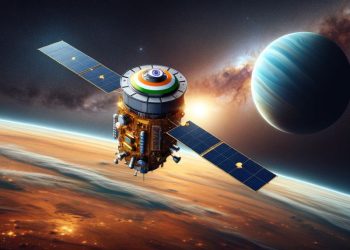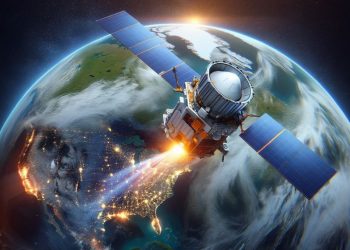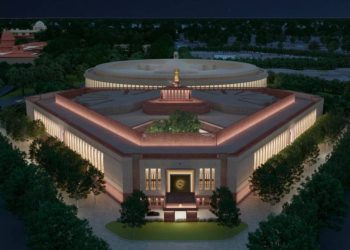This Post Is Recently Updated on Dec 15, 2023 @ 15:06 pm by TBB Desk
In the dynamic world of technology, a groundbreaking development is reshaping our understanding of computers and biology. Feng Guo, a pioneering bioengineer at Indiana University, is leading a team that’s blurring the lines between electronic hardware and biological processes. Their recent invention, the ‘biocomputer’, stands as a testament to human ingenuity and the limitless potential of interdisciplinary research.

Bridging AI and Biology
The core idea behind Guo’s biocomputer is the fusion of lab-grown brain tissue with electronic circuits. This novel concept aims to create a symbiosis between the complex functionalities of biological organoids and the precision of artificial intelligence. The biocomputer, named Brainoware, is not just a machine; it’s a harmonious blend of living cells and technology.
Brainoware: A New Paradigm
Brainoware is an astonishing feat. It uses laboratory-grown brain tissues, activated by electric pulses, to perform computations. This setup mimics the human brain’s processes, potentially leading to more natural and efficient computing systems. Imagine a computer that can perform complex tasks like speech recognition or solving nonlinear equations, all while learning and adapting like a human brain.
The Potential of Biocomputing
The implications of Guo’s research are far-reaching. Biocomputers like Brainoware could revolutionize fields from healthcare to AI development. In medicine, they could lead to better understanding of neurological disorders or even aid in developing personalized treatments. In the realm of AI, biocomputers offer a more organic approach to learning and processing information, moving away from traditional, linear computational methods.
The Path Ahead
While the current achievements are impressive, the journey of biocomputing is just beginning. Guo and his team continue to refine their techniques, aiming to create more complex and capable biocomputers. As this technology matures, it could lead to computing systems that are more in tune with the natural world, offering solutions that are currently unimaginable.
Feng Guo’s work stands at the frontier of technology and biology, opening doors to a future where computers are not just tools, but living, evolving entities. The biocomputer revolution is not just about creating new devices; it’s about redefining the relationship between humanity and technology.
This article reflects the state of biocomputer research as of late 2023, with information sourced from leading science and technology publications.
Sources
- Nature (2023): ‘Biocomputer’ combines lab-grown brain tissue with electronic hardware.
- Tech Xplore (2023): Brain tissue on a chip achieves voice recognition.
- ExtremeTech (2023): Human Brain Cells Linked With Computer Can Recognize Speech.
- Inkl (2023): Scientists Use Human Brain Tissue in Computing.
- Knewz (2023): Groundbreaking ‘Biocomputer’ Built With Human Brain Tissue.










